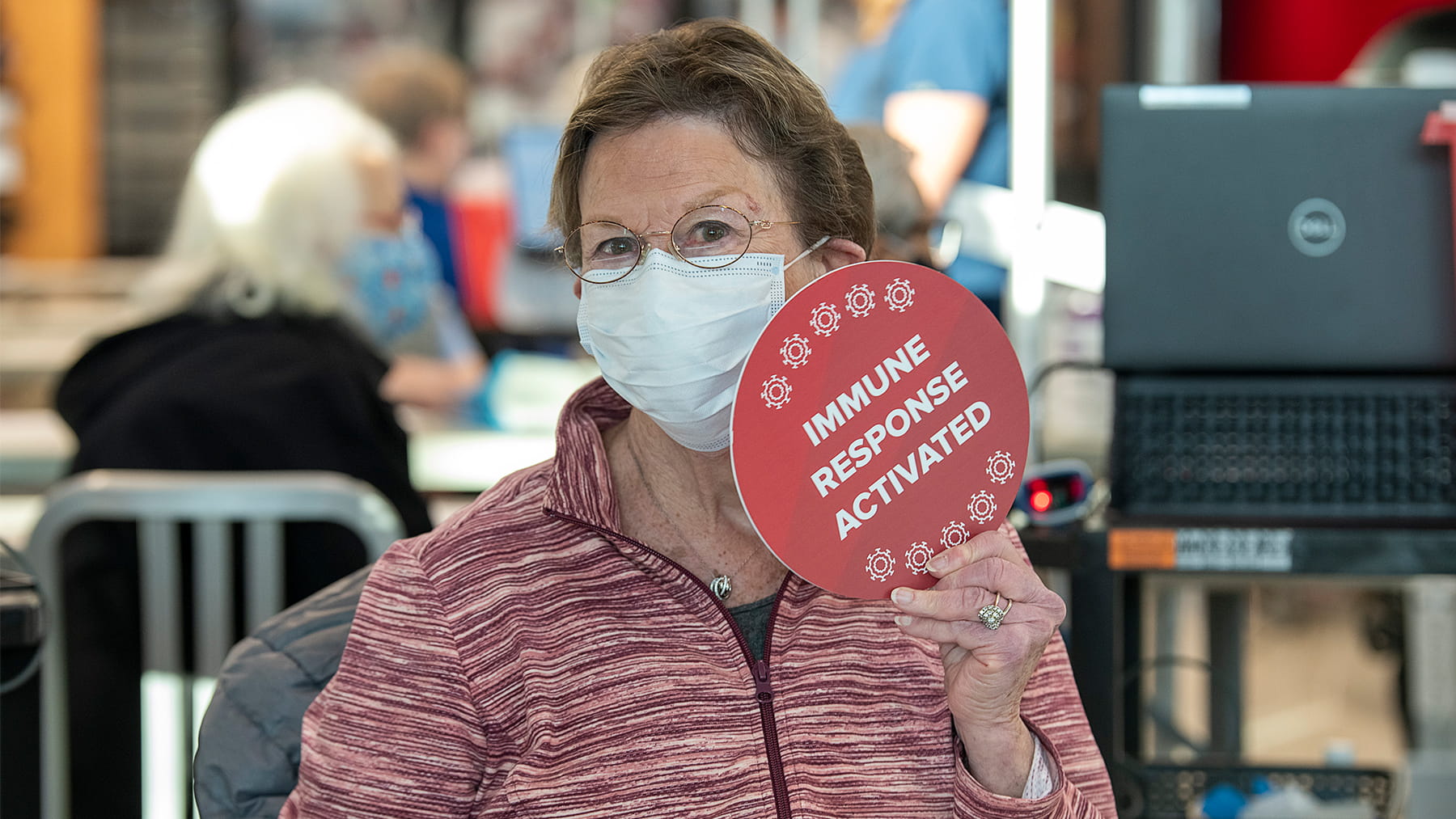How long does it take for the COVID-19 vaccine to work?

If you or a loved one has gotten a COVID-19 vaccine already, congratulations! This is an important step in protecting individuals and the public from the spread of this deadly virus.
But let me guess—you still have some questions, right?
Many of us do—even the experts who study infectious diseases for a living. Here, I’ll lay out what we know about how quickly and effectively the vaccine works and what we still don’t know about the transmission of COVID-19.
And yes, I’ll explain why you still have to wear a mask.
Let’s start with a common question.
How long does it take for the COVID-19 vaccine to work?
Regardless of which vaccine you get, you won’t reach full protection until two weeks after your second or final dose. That’s about how long it takes your immune system to mount an antibody response to the vaccine.
All vaccines work this way. Think of it in terms of when you have a cold—it takes your body a good amount of time to rid itself of what’s making you sick. A vaccine is essentially faking out your immune system and triggering a similar response. After the shot, your body has some work to do.
Am I protected from COVID-19 after the first shot?
The first of a two-dose COVID-19 vaccine does offer some protection, but not nearly as much as you’ll get from both doses.
For example, the Pfizer two-dose vaccine has 95% effectiveness at preventing symptomatic COVID-19 infection—but studies show that the first dose is only about 52% effective. This is why the second dose is so important, and why we’re so diligent about scheduling you for your follow-up shot.
What happens if I don’t get my second COVID-19 shot in time?
This story will tell you in detail why that second shot is so important, and what might happen if you skip the second dose. In a nutshell: Don’t skip it. Get the second dose within the appropriate window of time: 21 days for Pfizer, for example, and 28 for Moderna.
Can I stop wearing a mask after my COVID-19 vaccine?
No. Not after the first shot, not after the second, and not after the two weeks it takes for your vaccine to kick in.
Here’s why: While we know that the available vaccines are great at protecting the individual who received them from experiencing COVID-19 symptoms, we don’t yet know how good they are at preventing that person from contracting and passing the virus.
This means that even after receiving a vaccine you might be able to quietly, and without even knowing it, pass COVID-19 on to someone who has no protection from the disease—someone who hasn’t received the vaccine yet, or someone such as an infant who doesn’t have access to a vaccine.
Imagine unintentionally doing that to a person you love, such as a vulnerable parent or grandparent.
Studies are underway to learn more about whether you can still spread COVID-19 after a vaccine, but results could take months.
That’s why in the meantime it’s still critical that, vaccine or not, you keep wearing your mask, social distancing, washing your hands and not touching your face. The vaccine is a really important tool, but it’s just one of a combination of tools needed to control and end the pandemic.
Plus, remember that no vaccine is 100% perfect. You could still be vulnerable yourself.
Does the COVID-19 vaccine mean things will soon get back to normal?
I wish I had that answer, but there are a lot of variables at play right now. Vaccines are a great step in the right direction. The coming months will show us how many vaccines will become available and how quickly they’ll be administered to the public. We’ll also know more about how well the vaccines prevent asymptomatic spread and how long that protection lasts.
Get your vaccine when you can, and remain diligent in protecting yourself, your loved ones and your neighbors from COVID-19.
Nora Colburn is an infectious disease physician at The Ohio State University Wexner Medical Center and an assistant professor at the Ohio State College of Medicine.




